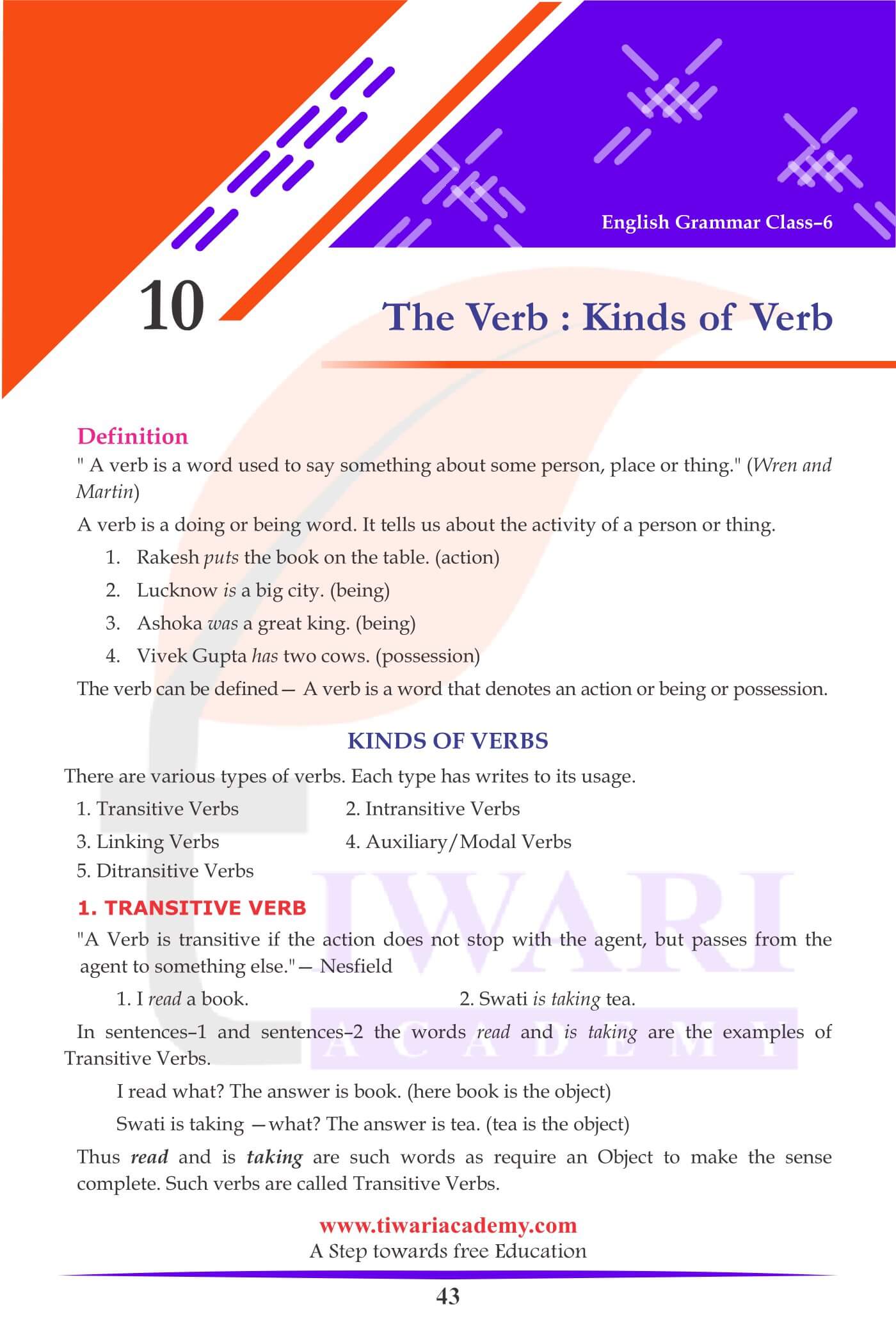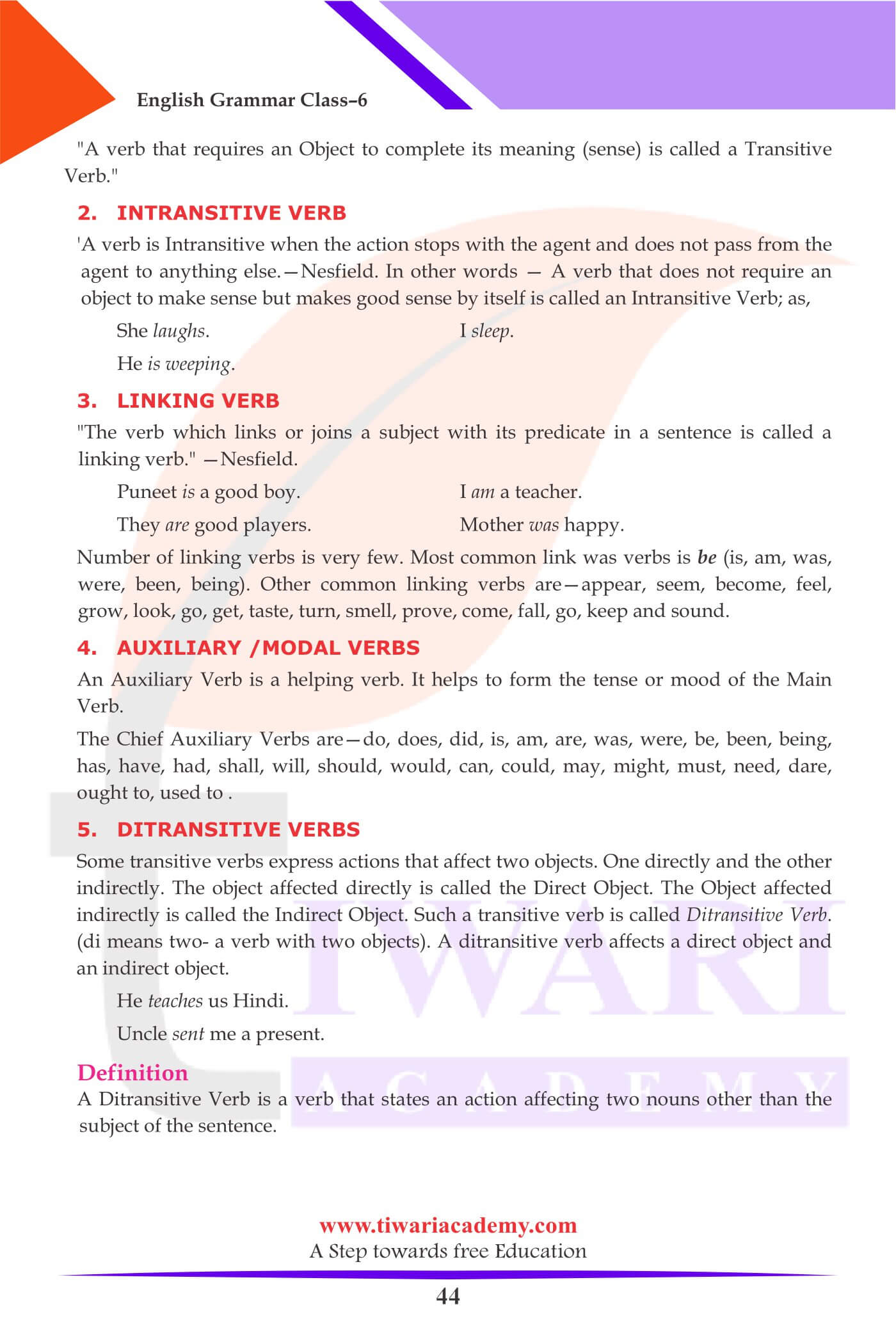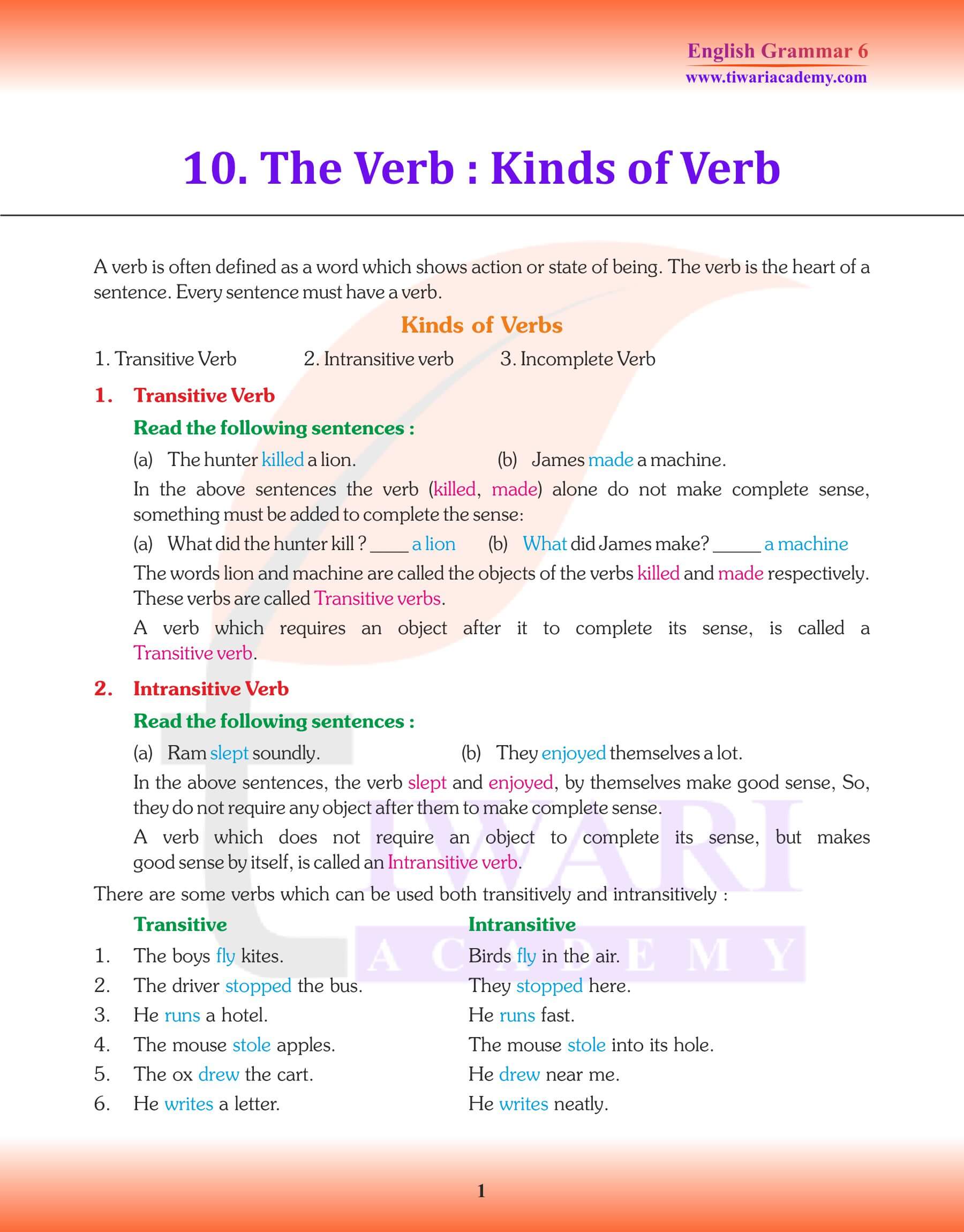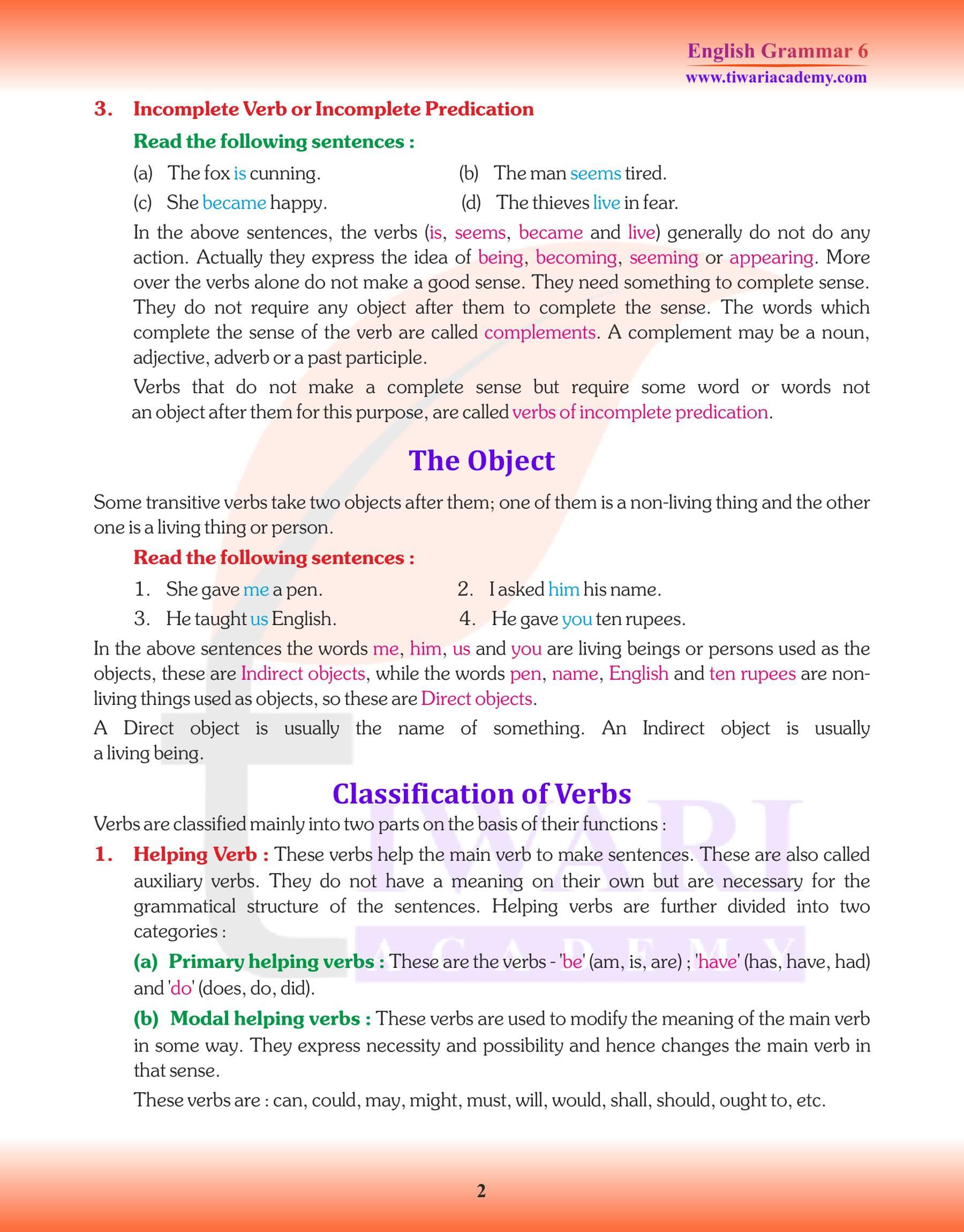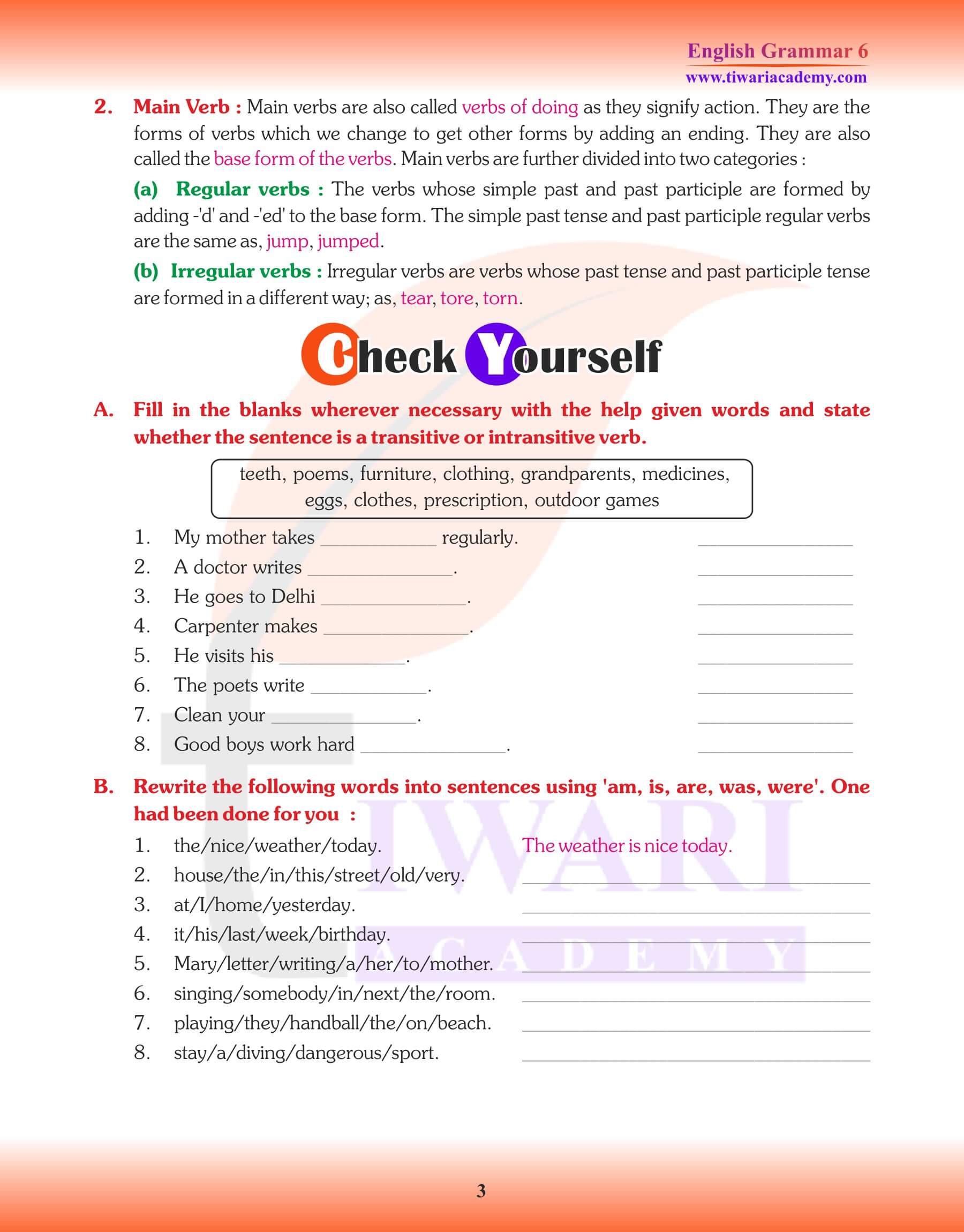A verb is a doing or being word. It tells us about the activity of a person or thing. In Class 6 English Grammar Chapter 10: The Verb – Kinds of Verbs, we will study about all the kinds of verbs with example. 6th English Grammer lesson 10 explain how to use all five forms of verb. According to Wren and Martin, a verb is a word used to say something about some person, place or thing. For example, Rajesh puts the book on the table. (action), Lucknow is a big city. (being), Ashoka was a great king. (being), Tiwari Academy is free webssite. (being), Vivek Gupta has two cows. (possession), The verb can be defined— A verb is a word that denotes an action or being or possession. There are various types of verbs. Each type has writes to its usage. Transitive Verbs, Intransitive Verbs, Linking Verbs, Auxiliary/Modal Verbs and Ditransitive Verbs.
Class 6 English Grammar Chapter 10 The Verb – Kinds of Verbs
Verbs and Kinds of Verbs Explanation
| Class: 6 | English Grammar |
| Chapter 10: | The Verb – Kinds of Verbs |
| Content: | Course Book and Revision Notes |
| Session: | 2025-26 |
Class 6 English Grammar Chapter 10: Kinds of Verbs
All the concepts related to Class 6 English Grammar Chapter 10: The Verb – Kinds of Verbs are given below with example and explanation. Definition of Verb and its five kind are given with suitable examples.
Transitive Verb
According to Nesfield – “A Verb is transitive if the action does not stop with the agent, but passes from the agent to something else.”
1. I read a book.
2. Swati is taking tea.
In sentences–1 and sentences–2 the words read and is taking are the examples of Transitive Verbs.
I read what? The answer is book. (here book is the object)
Swati is taking —what? The answer is tea. (tea is the object)
Thus read and is taking are such words as require an Object to make the sense complete. Such verbs are called Transitive Verbs.
“A verb that requires an Object to complete its meaning (sense) is called a Transitive Verb.”
Intransitive Verb
According to Nesfield – A verb is Intransitive when the action stops with the agent and does not pass from the agent to anything else. In other words — A verb that does not require an object to make sense but makes good sense by itself is called an Intransitive Verb.
- She laughs.
- I sleep.
- He is weeping.
Linking Verb
According to Nesfield – “The verb which links or joins a subject with its predicate in a sentence is called a linking verb.” Number of linking verbs is very few. Most common link was verbs is be (is, am, was, were, been, being). Other common linking verbs are—appear, seem, become, feel, grow, look, go, get, taste, turn, smell, prove, come, fall, go, keep and sound.
- Puneet is a good boy.
- I am a teacher.
- They are good players.
- Mother was happy.
Auxiliary Verb
An Auxiliary Verb is a helping verb. It helps to form the tense or mood of the Main Verb. The Chief Auxiliary Verbs are—do, does, did, is, am, are, was, were, be, been, being, has, have, had, shall, will, should, would, can, could, may, might, must, need, dare, ought to, used to.
Ditransitive Verb
Some transitive verbs express actions that affect two objects. One directly and the other indirectly. The object affected directly is called the Direct Object. The Object affected indirectly is called the Indirect Object. Such a transitive verb is called Ditransitive Verb. (di means two- a verb with two objects). A ditransitive verb affects a direct object and an indirect object.
- He teaches us Hindi.
- Uncle sent me a present.
Feedback and Suggestions
Download Offline Apps based on latest NCERT Textbooks for 2025-26 based on new CBSE Syllabus. Ask your doubts with us as well as with your friend or classmates in not only CBSE Board, but other board also and share your knowledge with your friends and other users through Discussion Forum.
